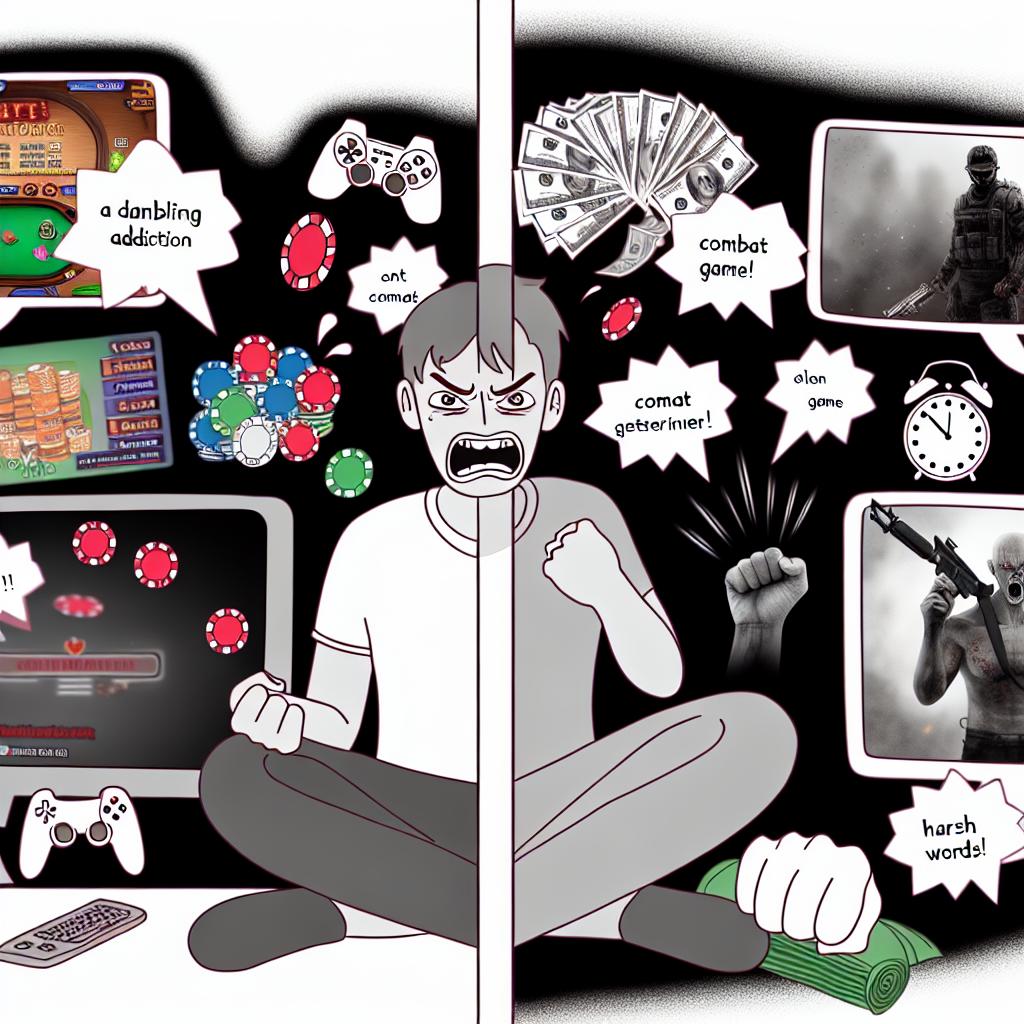Understanding Gaming Addiction and Aggression
Gaming addiction, often referred to as Internet Gaming Disorder, has been garnering increased attention from both psychological and academic fields over the past few years. Understanding its potential association with aggression—a behavior marked by the intention to cause harm to others—is essential. By delineating this connection, we can identify potential risks and create interventions to mitigate negative consequences.
Defining Gaming Addiction
Gaming addiction is essentially the compulsive and excessive engagement with video games to the point where it disrupts everyday life. The World Health Organization officially recognized “gaming disorder” as a mental health condition in 2018, acknowledging its pervasive impact on individuals:
Preoccupation with gaming: An addicted individual often spends a considerable amount of time thinking about previous gaming experiences or planning the next gaming session.
Withdrawal symptoms: Much like substance addiction, when not gaming, individuals may experience irritability, anxiety, or sadness.
Tolerance: Over time, the need to spend increasing amounts of time engaged in gaming to satisfy the urge becomes evident.
Loss of interest: As the addiction progresses, sufferers gradually lose interest in other activities they once enjoyed or participated in.
Impairment in personal or social functioning: This interferes with key areas of life, such as education, employment, and relationships.
Aggression: A Complex Behavior
Aggression is a diverse and multifaceted behavior characterized by the intent to inflict harm or pain on another. It can take several forms, including physical, verbal, or relational aggression, each with its own underlying causes and manifestations. This behavior can be influenced by various factors:
Biological factors: These may include genetic predispositions or neurobiological components.
Psychological aspects: Personal history, mental health conditions, and personality traits often play significant roles.
Environmental influences: Experiences, upbringing, and exposure to certain media can shape aggressive tendencies.
The Connection Between Gaming and Aggression
A crucial debate within the field revolves around whether video gaming, especially violent games, directly fosters aggressive behavior. Some studies propose a connection between gaming addiction and heightened aggression, while others argue against the existence of a meaningful causal link. Several theories attempt to elucidate this complex relationship:
Desensitization and Imitation: Regular interaction with violent video games may reduce sensitivity to violence and normalize aggressive behavior, potentially leading to imitation in real life.
Catharsis Theory: This perspective advocates that gaming can serve as an outlet to release aggression harmlessly, potentially diminishing aggressive behaviors in real life.
Research Findings
Empirical research on the connection between gaming addiction and aggression yields mixed results. The American Psychological Association, for instance, highlights a minor yet significant relationship that links prolonged gaming to heightened aggressive thoughts or actions. However, not all investigations arrive at the same conclusion, with many acknowledging that additional factors, such as an individual’s personality traits and environmental contexts, might have substantial influence.
Considering Other Factors
While gaming can be one aspect, understanding the broader context and other elements influencing addiction and aggression is essential:
Personal characteristics: Traits such as impulsivity, emotional regulation capacity, and individual susceptibility could impact both behaviors.
Social relationships: Interactions with peers, family, and community play pivotal roles in shaping an individual’s behavior and coping mechanisms.
External stressors: Situational factors, including academic pressures, workplace stress, or life events, may exacerbate tendencies toward addiction and aggression.
Conclusion
The nuanced relationship between gaming addiction and aggression remains a complex area requiring continuous exploration. Current evidence suggesting a correlation remains insufficient to form a definitive causal connection. For parents, educators, and mental health professionals, it’s crucial to assess gaming behavior within a broader psychosocial framework, taking into account the individual’s history, traits, and external influences. Ongoing research and informed dialogue will be instrumental in addressing this intricate issue and formulating effective strategies to mitigate risks.

